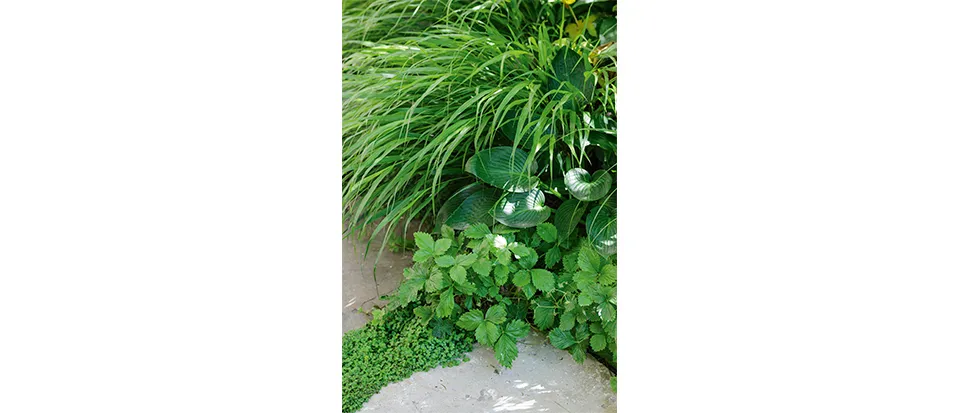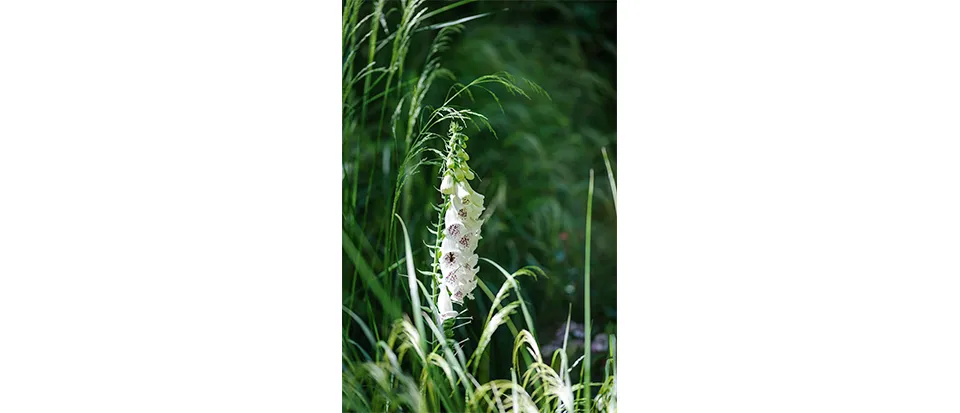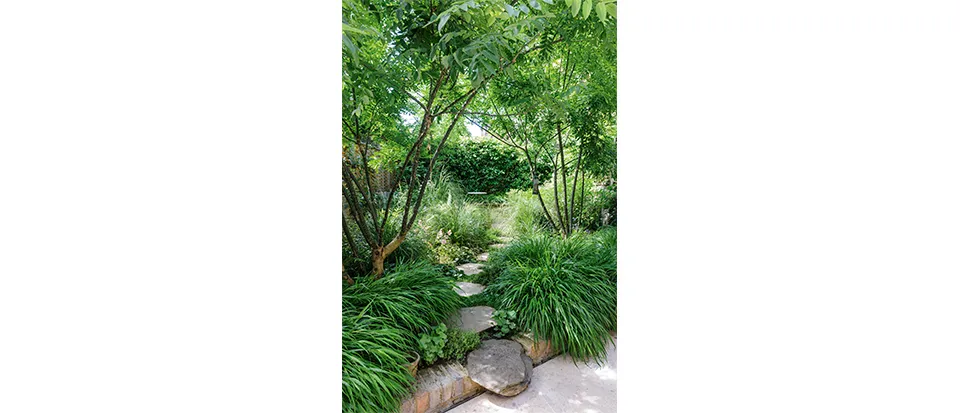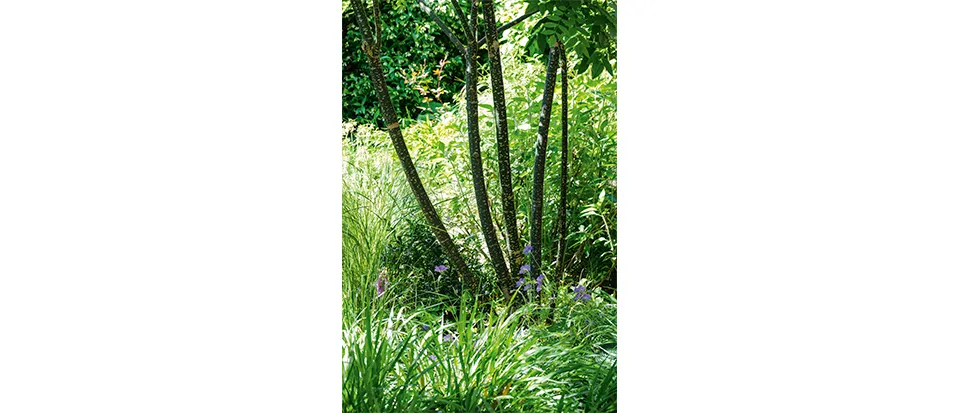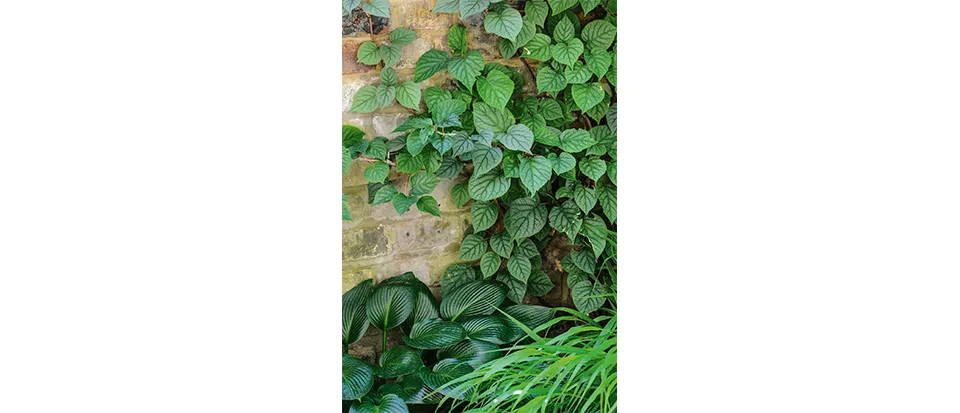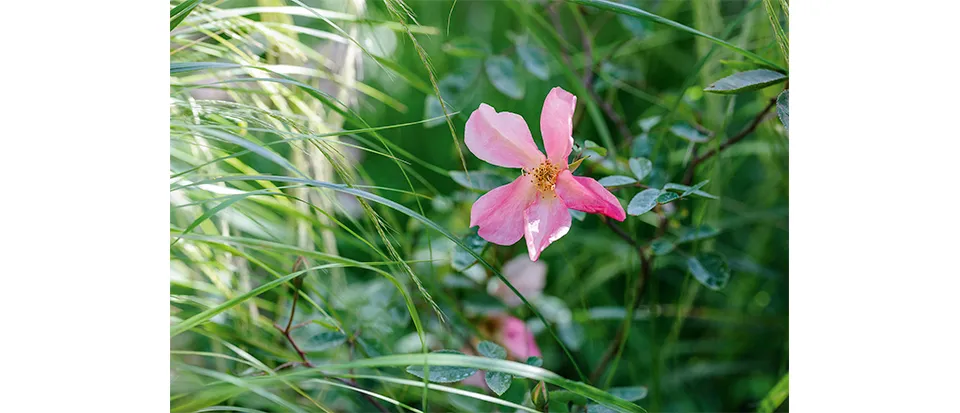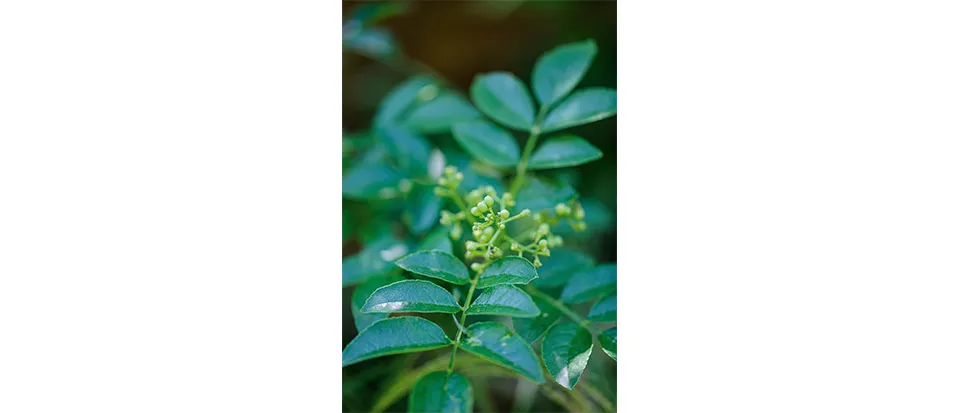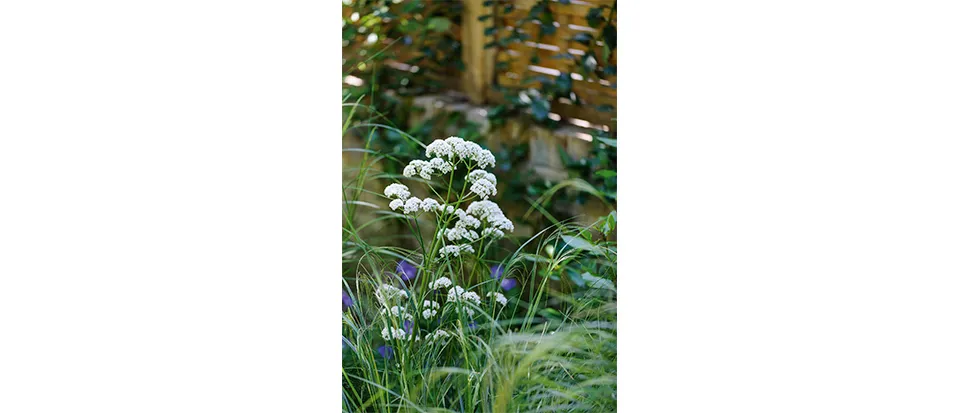“I love this garden,” says Charlotte Harris of design duo Harris Bugg, who, between Charlotte in London and Hugo Bugg in Exeter, take on a dizzying variety of projects, of every size and description. Not to mention their upcoming Main Avenue show garden for this year’s RHS Chelsea Flower Show. Tucked away behind a north London terrace, this is one of the pair’s smaller gardens, a microcosm of their focus on texture and shape, with imaginative hard landscaping.
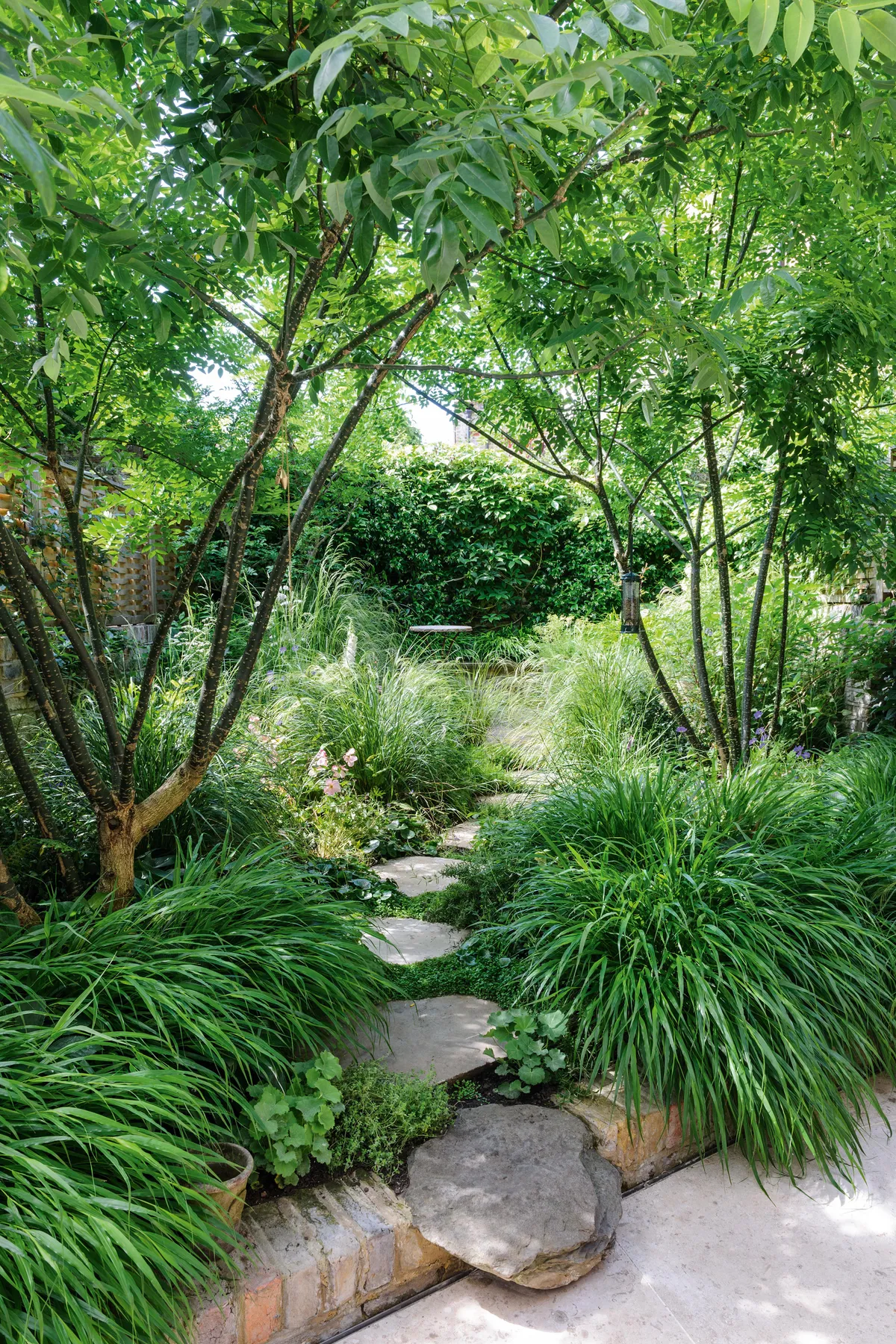
“Looseness is a word that was used a lot during the planning,” Charlotte recalls as she describes the client’s brief. “He wanted something wild, like a meadow in the back garden.” It’s music to a designer’s ears, she notes, when clients with small gardens do not ask for a lawn. Instead, the garden has ‘moments’ during the day, in response to the sun’s progress; an antique table towards the back is uncluttered by chairs, and provides a focus, if not a destination, for the winding path of stepping stones that begin at the garden’s second level.
What Small, southwest-facing town garden. Where London. Size 49.5 square metres. Soil Improved London clay. Climate Temperate. Hardiness zone USDA 9.

The Planting
The combined canopies of a pair of Japanese pagoda trees (Styphnolobium japonicum) create a sense of privacy outside the garden room of the house, throwing a bit of shade over the front of this refined urban meadow. Fresh-green rugs of Hakonechloa macra cheerfully flop over edges, and are joined further in by plants that are generally more obliging than aggressive. Evergreen Anemanthele lessoniana (pheasant grass) can get too full, but is easily thinned by running one’s fingers through it, in the manner of a razor comb.
“I like the idea that things are moving around and are not too controlled in here,” says Charlotte of this year-old garden. The intention is to keep a sense of delicacy. White foxgloves (Digitalis purpurea ‘Dalmatian White’) are expected to spread around, with meadow cranesbill (Geranium ‘Brookside’) rambling through. Common valerian (Valeriana officinalis) has a reputation for rampant behaviour, but it can easily be thinned as it threads its way through this London plot.
“You want certain things to be thuggish, so that they can withhold a kicking next to paths,” says Charlotte. To this end, she and Hugo have used Alchemilla erythropoda, which is “really pretty” but tough like Alchemilla mollis. Dense, carpeting Soleirolia soleirolii (mind-your-own-business) has also been used in shade: “It’s such a hooligan but felt right here, with the stepping stones.”
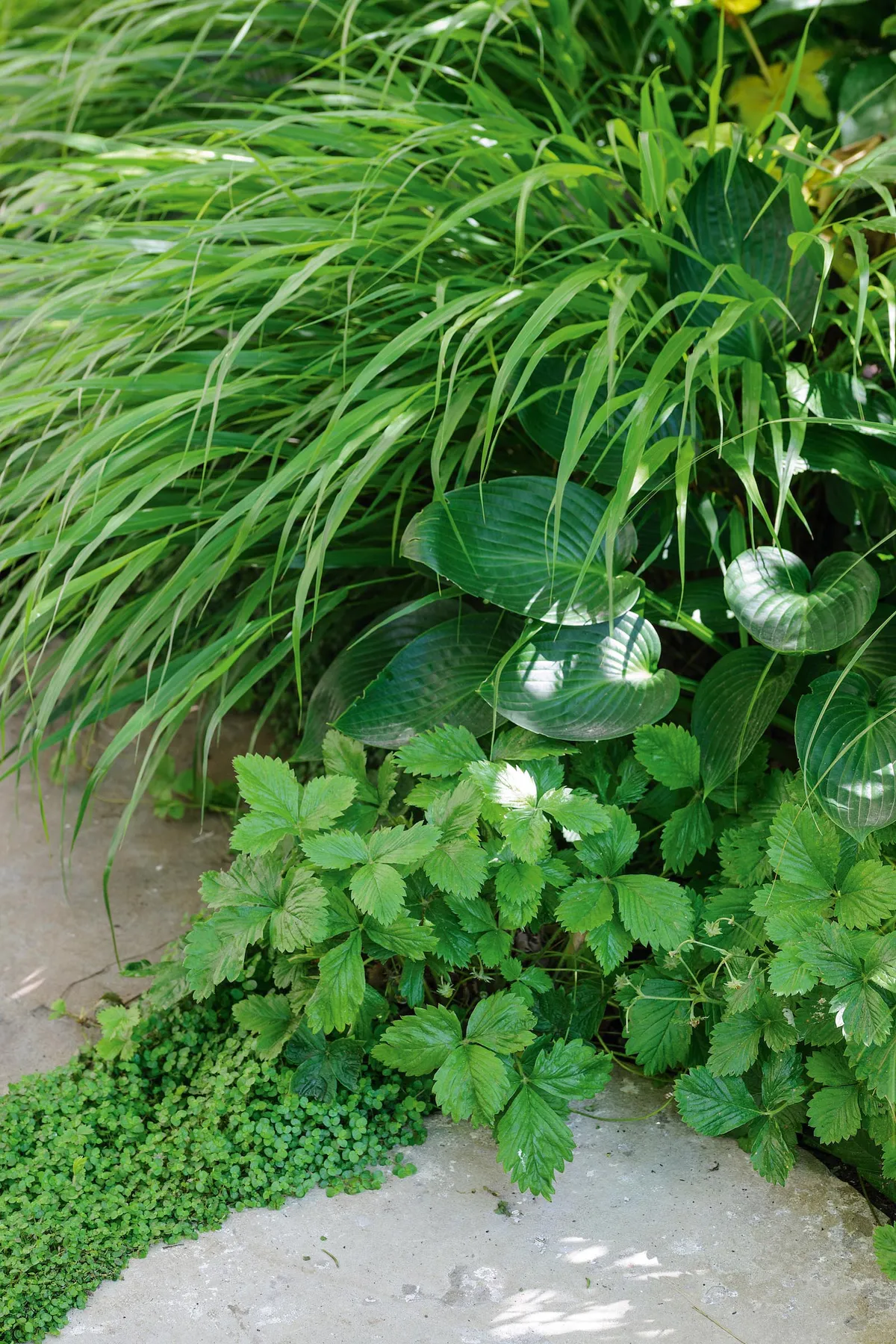
Leftover York stone slabs have been used at the back, fitted together by contractor Mark Whyman, in a way that is more crazy-paving than modular, thus aiding the flow of planting. At the front, a sourced boulder reaches towards limestone-paving smoothness. This sense of warm elegance extends to the woven oak trellis: “In this tiny slice of meadow, we wanted something that was softer than slatted trellising,” says Charlotte. The result is a contemporary nod to woven hazel.
Reports from the owner suggest that this garden is constantly visited by local wildlife, with squirrels competing for wild strawberries. It is chemical-free, and the hostas show no sign of snail damage. “This is entirely because there is a lot of bird life in here,” says Charlotte. “It’s a very happy little garden.”
Garden foraging
Part of the client’s brief for Harris Bugg Studio was that he wanted his urban meadow to have an edible element. Edgings of wild strawberries and prostrate rosemary provide texture and an effective groundcover as well as being harvestable. Herbs, in sunny areas and in pots, include thyme, fennel, lemon verbena, upright rosemary and loose shrubs of bay.
Other good-value plants include Sichuan pepper (Zanthoxylum simulans): “It has a really nice filigree quality, then you get the pepper at the end of the season,” says Charlotte. A broad-leaved sausage vine (Holboellia latifolia) has enthusiastically covered the back wall, producing strange- looking but palatable fruit in autumn.
Useful Information
Find out more about Charlotte and Hugo’s work at harrisbugg.com.
